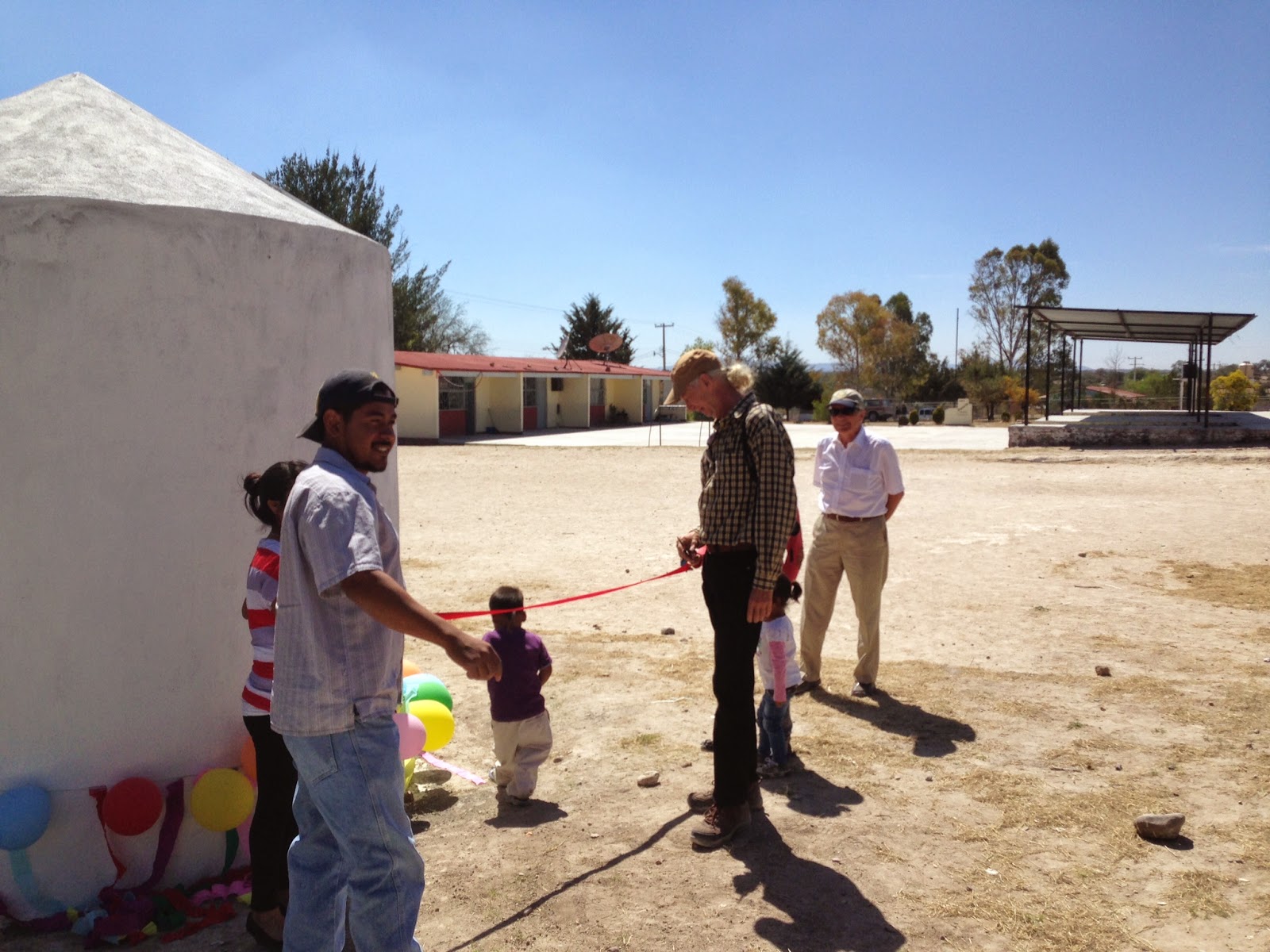Today we traveled over the hill and through the woods (fording a river
long the way) to enjoy the closing celebration for our La Banda and Montecillo de
Nieto project.
We are joined this week by representatives of the Lotus
Foundation who provided significant funding to these projects and also to our
previous project at Ex-Hacienda de Pena Blanca. Mark and Margaret are here and
they have brought along the president of the board of Lotus, John, and Eric who
is also a board member. Yesterday they were able to see the construction of a
pilot cistern at Vivienda Urbano after having a presentation at our weekly
Rotary meeting from Dr. Adrian Ortega, the absolute guru and expert on our
Independence Aquifer and its problems.
Alejandro, Ivar, David H, Tom and Sara also came from Rotary San
Miguel Midday. We brought a few other visitors with us that wanted to see in
person our water harvesting projects. We arrived early enough so that we could
go see five of the new cisterns … moving our group along from stop to stop was
a bit like herding cats but ultimately we were able to do this. John and Eric
from Lotus had many good questions and observations.
The closing ceremony began about 1:00 pm at the pilot cistern
location in Nuevo Rancho de la Banda. There were about 60 persons present
including Saul and Chela of CEDESA. There were six person representatives from
each of the communities of Ex-Hacienda de Pena Blanca, Presa Allende, Alonso
Yanez, and Lindero. All of these communities are hoping to begin projects soon.
We will begin in Alonso Yanez and Lindero later this month.
We had short
speeches from each of these communities as well as from Alejandro for Rotary
and Chela for CEDESA. Several people from La Banda and Montecillo de Nieto
spoke about their experience with this project. Reina from La Banda explained
that she was surprised by how hard the work was being that never before had she
had to manage a shovel and mix concrete … she is right; it is hard manual
labor. Everyone chuckled a bit and said they would be more understanding of
their husbands when they came home from working as construction workers.
Another person from Montecillo reflected that even though the work was hard, it
was really fun working together in the groups. The Montecillo spokesperson
pointed out that although they have been waiting two years to get the resources
for this project that it has been a good experience and they have learned many
other important things along the way.
Finally, after cutting the ribbon to
close the project, we got to the real business of the day: lunch. Many persons
brought many delicious dishes and we all left full and satisfied.
After lunch Saul and I returned to Vivienda where the pilot cistern
is being built. I watched as Saul taught the work teams to form the cone shaped
top of the cisterns. I could only admire the way that the materials (wire and
reinforcing) have been mineralized to leave not much more than the “oink” as
they say.
Overall it was another great day in the campo and enjoying the fruits
of these projects.
Tomorrow we will be taking the Lotus foundation visitors to see the
Ex-Hacienda de Pena Blanca project where
there is already a new group asking us to fund a phase II project for them. We
will also visit Juan Gonzalez where we have just recently completed 15 cisterns.
Submitted by: Lee Carter, Rotary San Miguel Midday






